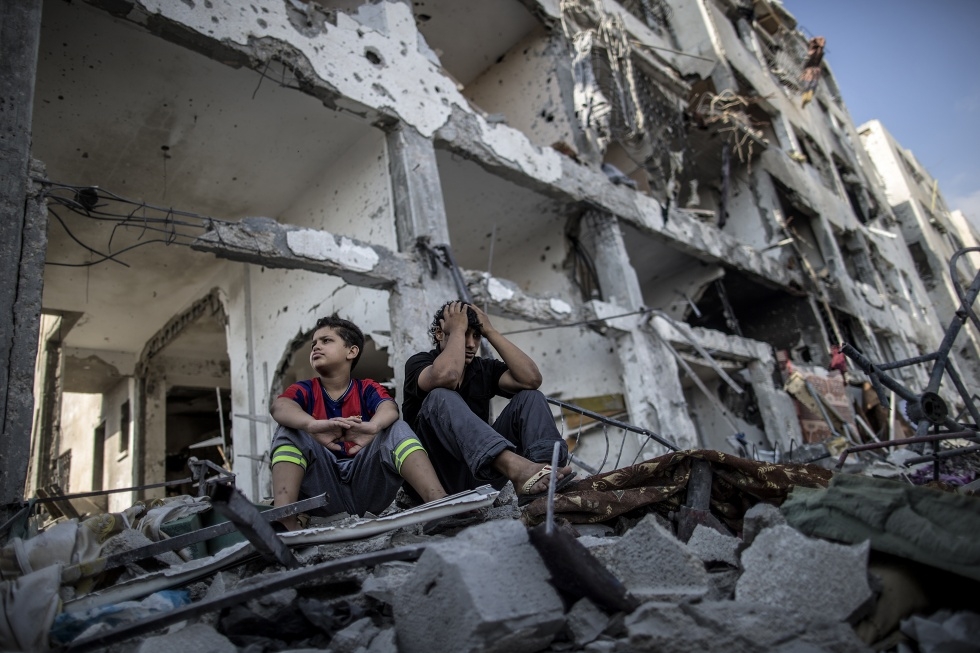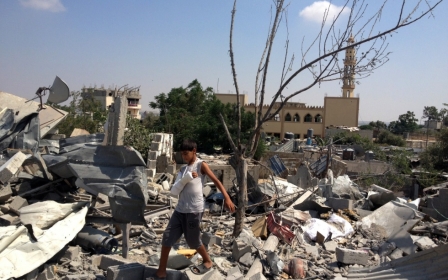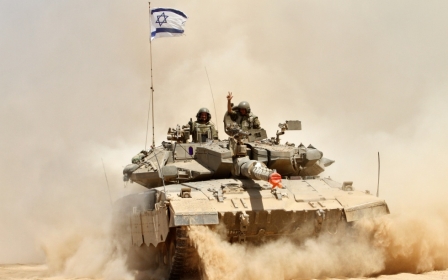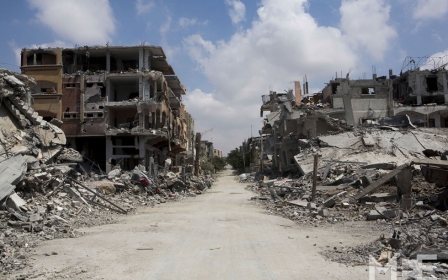Day 2 of Gaza truce ahead of crunch Cairo talks

A fragile ceasefire in the Gaza Strip entered a second day Wednesday as Israeli and Palestinian delegations prepared for crunch talks in Cairo to try to extend the 72-hour truce.
The ceasefire, which came into effect Tuesday, has brought relief to both sides after one month of fighting killed 1,875 Palestinians and 67 people on the Israeli side.
Delegations are now ready for what are expected to be tough talks aimed at securing a permanent ceasefire after the three-day window closes.
Officials on both sides confirmed sending small teams to Cairo, but they bring conflicting demands and face an uphill diplomatic battle.
Middle East Quartet envoy Tony Blair and UN envoy on the Middle East peace process Robert Serry arrived on the same flight from Tel Aviv to Cairo on Wednesday for the talks.
The Palestinians insist that Israel end its eight-year blockade of Gaza and open border crossings, while Israel wants Gaza fully demilitarised.
But after the longest period of quiet since fighting began on 8 July, Palestinian foreign minister Riyad al-Malki said he expected "the ceasefire to expand into another 72 hours and beyond".
The United States is also due to take part in the talks.
"We are determining at what level and in what capacity and when," State Department spokeswoman Jen Psaki told reporters in Washington.
US Secretary of State John Kerry, in a BBC interview, called for a sustained ceasefire but stressed that the crucial wider issues will need to be addressed.
"How are we going to make peace? How are we going to eliminate these rockets? How are we going to demilitarise and move towards a different future?" he asked.
On the first day of the truce in Gaza City, people came out in numbers, children played on the street and some shops reopened for the first time in days.
Others ventured home only to find utter devastation.
“They [Israel] bombed the hell out of our homes, with their Hellfire missiles, drones, tank-shells and gas which irritates the skin and eyes of my children,” Umm Feras Abuelneen told MEE.
Abuelneen, 35, had returned to her apartment in the al-Nada residential towers in Beit Lahia to find her home bombed and smashed into dust and debris.
Relief but scepticism
Israel's security cabinet met to discuss a long-term ceasefire, but broke up without any public statement.
In southern Israel, there was relief but scepticism.
"I never trust Hamas," said Orly Doron, a mother living in a Gaza border kibbutz that has been battered by rocket fire.
"We had three or four ceasefires during this war; we all saw they weren't kept."
A poll published by Israeli daily Haaretz Wednesday said a majority of Israelis thought "nobody" had won the conflict in Gaza.
Asked "Following the ceasefire, how would you describe the results of Operation Protective Edge?", 51 percent of those who took part said neither side had won.
Another 36 percent said they thought Israel had won, and just six percent thought Hamas had emerged victorious.
It is the second time in four days the two sides had agreed to observe a 72-hour humanitarian truce. The previous attempt on 1 August - brokered by Washington and the UN - was shattered after just 90 minutes.
The new ceasefire, announced by Egypt late on Monday, is the longest lull since fighting began.
This time Israel has withdrawn its troops, ending the ground operation aimed at destroying Hamas's tunnels.
Army spokesman Lieutenant Colonel Peter Lerner said troops would respond to any truce violations.
Israeli Brigadier General Guy Goldstein, deputy head of the unit responsible for civilian affairs in the Palestinian territories, said more than 250 trucks of supplies entered Gaza on Tuesday.
$6bn in damage
The Palestinian health ministry said 1,875 Palestinians had been killed during the conflict, including 430 children, and said 9,567 people had been wounded, including 2,878 children.
In the West Bank city of Ramallah, deputy economy minister Taysir Amro said the 29-day war had caused total damage of up to $6 billion.
Some of the worst devastation is near the southern Gaza city of Rafah, which was flattened in a massive Israeli assault that began on Friday.
The United States and the United Nations have welcomed the truce, saying the onus was on Hamas to keep its part of the deal.
Israel has been subject to increasingly harsh criticism over civilian casualties in Gaza.
On Tuesday, Baroness Warsi, a high-profile British Foreign Office minister, became the senior first European politican to step down over their government’s stance towards Gaza on Tuesday morning.
Following on Warsi's resignation, early Wednesday UK Deputy Minister Nick Clegg tweeted that arms export licenses to Israel should be suspended.
A British parliamentary committee report also said Wednesday excessive Israeli restrictions on Palestinian territories cannot be justified on the grounds they protect the Jewish state.
"We challenge the assertion that restrictions which curtail economic development in the OPTs [Occupied Palestinian Territories] are based on Israel's security needs and can be justified on security grounds," the report by the International Development Committee said.
The group, which monitors the British government's ministry of international development, called for London and Europe to speak out against restrictions that prevent economic development "as a matter of urgency".
The Israeli army says it destroyed 32 cross-border tunnels, struck nearly 4,800 targets and killed 900 Palestinian "terrorists".
"We expect that they still have about 3,000 rockets left. This is a challenge we have to address," Lerner said.
Middle East Eye propose une couverture et une analyse indépendantes et incomparables du Moyen-Orient, de l’Afrique du Nord et d’autres régions du monde. Pour en savoir plus sur la reprise de ce contenu et les frais qui s’appliquent, veuillez remplir ce formulaire [en anglais]. Pour en savoir plus sur MEE, cliquez ici [en anglais].




